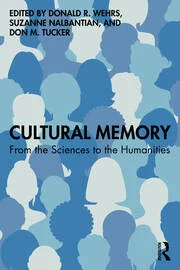Alexa Weik von Mossner has published a book chapter, entitled “Nourishment for the Mind: Narrating Indian Food as Cultural Memory,” in Memory: From the Sciences to the Humanities, edited by Donald Wehrs, Suzanne Nalbantian and Don Tucker (Routledge 2023).
The chapter explores how the complex relationships between food, memory, and culture are represented and evoked in ethnic American cultural texts. Memories of food are more than just personal recollections of a particular dish – they are both intensely personal and embedded in larger collective memories, dietary traditions, and culinary practices. They also play an important role in identity formation and sustain social and cultural worlds, not only in the place in which they were formed but also in diasporic communities far away from that place of origin. This is particularly obvious in a country like the United States with its long history of immigration. For successive waves of immigrants, the dishes they consumed and cherished became a means of negotiating the degree of their assimilation to mainstream U.S. culture, on the one hand, and a means to hold on to their cultural roots, on the other.
The chapter considers a conjunction of literature and film – among them Shoba Narayan’s Monsoon Diary: a Memoir with Recipes, Jumpha Lahiri’s short story “Mrs. Sen’s,” Jason Zeldes’s Ugly Delicious episode “Don’t Call It Curry,” and David Kaplan’s feature film Today’s Special – that represent and remember the culinary traditions of India and, by extension, those of Indian Americans. Making connections between empirical-scientific and historical-interpretative levels of analysis, the chapter demonstrates that narrated food memories, along with the sensual evocation of the remembered dishes and their preparation, play an important role in how writers and filmmakers invite their audiences to appreciate and/or celebrate the food and cultural identity of an ethnic minority group. Whether it is the visceral evocation of specific dishes and/or their preparation that is foregrounded, or characters’ personal relationship to them (or both), such acts of narrativization always comment to some degree on issues of identity and U.S. racial politics.

